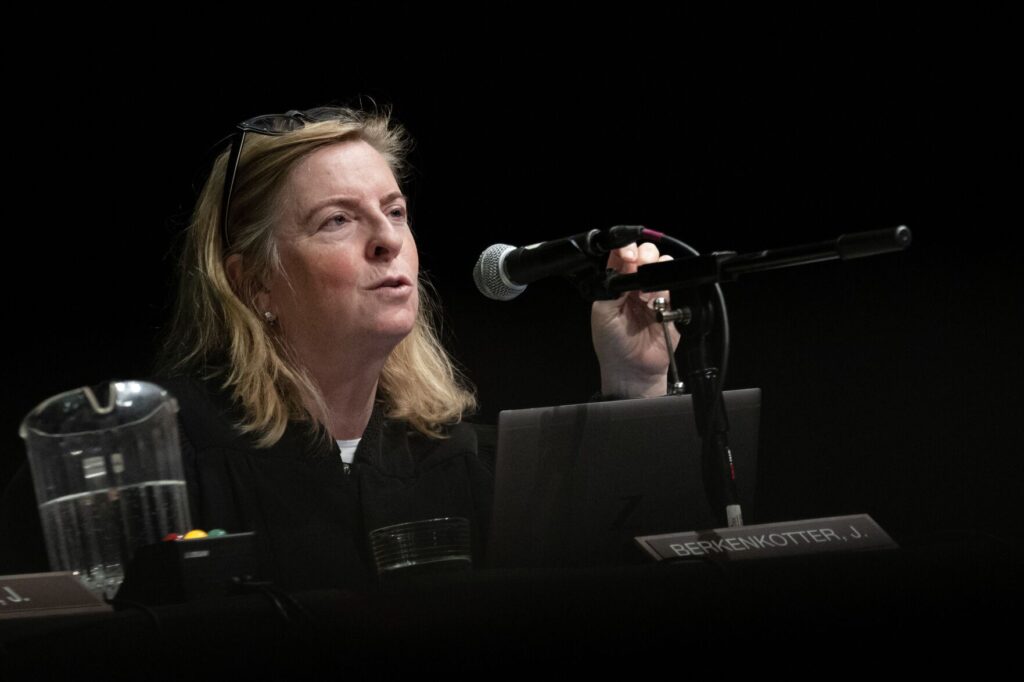Q&A with Brad Ross-Shannon | Trial lawyer discusses Colorado’s first Jury Appreciation Day

This year, the General Assembly enacted a bill establishing “Jury Appreciation Day” in Colorado, which will be commemorated for the first time on Sept. 5.
The date is tied to a jury’s 1670 verdict in the trial of William Penn and William Mead, who the British government prosecuted for preaching in public. The court retaliated against jurors when they did not convict the men as charged.
“Our country’s founders included the right to be tried by a jury of our peers, a safeguard against tyranny, in the Bill of Rights,” Colorado’s legislation declared. The bill also allows state employees to take Sept. 5 off in lieu of another paid holiday.
Brad Ross-Shannon, an attorney who litigates insurance cases and who is a member of the American Board of Trial Advocates, spoke with Colorado Politics about how Colorado came to join other states that commemorate jury service.
FAST FACTS
- Jury Appreciation Day will occur on Sept. 5.
- There is no statewide commemoration, but the 17th Judicial District (Adams and Broomfield counties) will provide snacks, beverages and a commemorative pen to jurors.
- The Eighth Judicial District (Larimer and Jackson counties) will hand out a thank-you letter, pens, coffee and donuts, and a judge will thank them as a group.
- Only a small percentage of cases results in a jury trial each year in Colorado.
Colorado Politics: Whose idea was it to propose a Jury Appreciation Day for Colorado?
Brad Ross-Shannon: About 12 years ago, the Colorado chapter of ABOTA had a jury appreciation proclamation issued. About two years ago, when I was president, we formed a committee to try and have Jury Appreciation Day become a commemorative holiday so that annually, there would be some recognition of what a great job and important job our juries do.
It’s been the Colorado chapter of ABOTA that has really come up with the concept. ABOTA is a national organization and it is an invitation-only association of plaintiff and defense lawyers who do civil cases. The mission of ABOTA is to preserve the civil jury trial, as well as to promote professionalism and an independent judiciary.
CP: What was your involvement in the bill establishing Jury Appreciation Day?
BRS: I actually met with (former) Sen. Pete Lee from Colorado Springs. Sen. Lee was in his last term, so while he was very supportive of the idea, it wasn’t a bill that he could take on. So he put me in touch with Sen. Bob Gardner and also Rep. Mike Weissman and I just kept in contact with those guys. The first time we presented it, it didn’t have interest, I guess, or it wasn’t a priority. They said to come back for this next session, which we did.
CP: So the bill did not have unanimous support. Some lawmakers pointed out that juries are an imperfect mechanism of deciding cases, one that both contains and reflects society’s biases. In particular, at a committee hearing, Rep. Elisabeth Epps, D-Denver, described the “racial justice implications” of jury service and the “black box of unelected, unaccountable, uncorrectable secrecy” that happens in jury deliberations. Should people be thinking about that aspect of jury service as well on Jury Appreciation Day?
BRS: The whole idea of Jury Appreciation Day was to recognize the difficult job that jurors do. In terms of those comments, it was something we had not addressed, not really contemplated. While our jury system is not perfect, jurors generally get it right and they treat people – whatever race, gender, standing they have in the community – they treat people fairly. And that’s what we wanted to recognize, and really have state officials recognize that we appreciate the job that they do.
CP: Do you have any suggestions for how to improve jury service for the people who get called to do it? And also improving jury outcomes, meaning the delivery of justice?
BRS: It’s the best system in the world and we’ve had discussion amongst ABOTA members that jurors are really, to use one person’s term, the best “BS barometers” around. We’re all human beings, so there’s always going to be potentially an anomaly of a jury verdict, but it is the best system because with six people on a civil jury or 12 people on a criminal jury, you really get rid of agendas that any single individual may have, whether consciously or subconsciously.
As far as ways to improve jury service, it kind of falls back, I think, on the lawyers trying cases in front of them – meaning to be efficient, not waste their time, not do things that have them sitting around and presenting them with straightforward evidence so they can make a fair decision.
CP: Are you aware of how other states that recognize this holiday celebrate it?
BRS: I think most of the other states actually have jury appreciation weeks. What they do during that week, I don’t know. This is the first one (in Colorado) and we’re trying to figure out a way to get folks to celebrate it. If there isn’t a celebration of some sort this time, hopefully the next one that comes around in 2024 we’ll be able to do something a little more concrete.
CP: What is the appropriate way to celebrate in your view?
BRS: I would want to see the governor or attorney general issue a statement or have some media coverage just thanking the jurors and thanking our jury system and praising our jury system. I had a trial last week and talked to the jury afterwards and they said you know, when it came down to it, we made our decision and we then had to sign the verdict form and they had butterflies signing the verdict form.
It’s a way that jurors participate in our democracy where they might not otherwise. Just to publicize the recognition for the jurors and to give the public some sense that this is an important duty and responsibility that we have.
CP: Speaking of participation, that was a concern of a lot of lawmakers, particularly lawmakers of color, who brought up that in the history of jury trials – especially in criminal trials – people of color have been removed from juries for reasons related to their race. The U.S. Supreme Court and state Supreme Court have tried to crack down on that, but the problem still does exist and the bill establishing Jury Appreciation Day added some language recognizing the history of exclusion from juries. What is your experience with that?
BRS: My experience is the jurisdictions and venues where I try cases usually have a very diverse jury panel. There’s a method that courts can use to challenge a lawyer from kicking off a juror based on race, gender or some other protected class. It’s called a “Batson challenge.” So there’s a recognition in the law that the practice of trying to eliminate protected classes of individuals can occur by lawyers, but the court has a remedy to make sure that doesn’t happen. I’ve tried a lot of cases and I have rarely seen that Batson challenge made.
CP: How will you celebrate Jury Appreciation Day?
BRS: I’m not sure yet! Too early to say.














